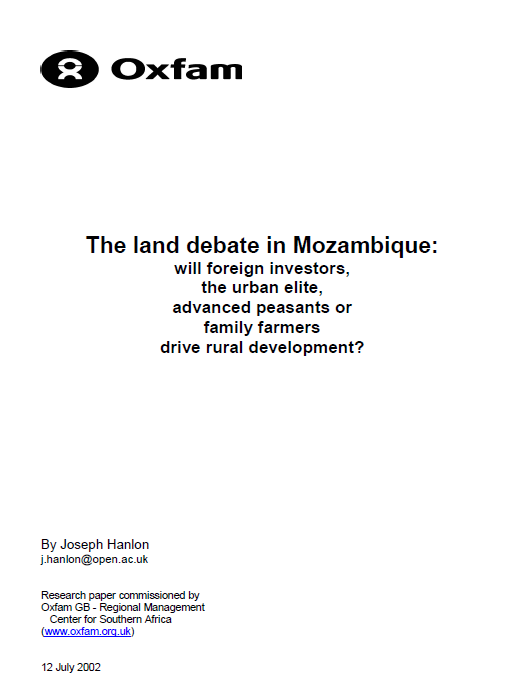Resource information
Land is again the subject of debate in Mozambique, five years after the passage of a land law following wide-spread consultation in one of the most democratic processes in Mozambique in the 1990s. The law has won praise for protecting peasant rights while creating space for outside investment. The new debate is about two issues:
Should land, or at least land ’titles’ (effectively, leases), be able to be sold and mortgaged?
Should more emphasis be put on improving conditions for would-be investors (particularly large foreign investors) or should the stress being on delimiting and protecting peasant land, and capacitating communities to deal with investors.
This paper argues that the debate on land is actually a proxy for a debate about rural development. Four groups are cited as possible vehicles for rural development foreign investors, the urban elite, advanced peasants and family farmers with different groups being prioritised by different Mozambican and foreign actors. Debate over which groups are prioritised helps to shape the debate over land. It is noted that there are sharp divisions within government, within the World Bank, within donor agencies, and within Mozambican civil society. The land debate is also linked to one over rural credit and support for farmers.
The paper then looks a what land is available for investors and at the difference between free or vacant land (of which there is very little) and underused land (of which there is a lot). Individuals and companies can use land which is free and has no occupants, if the local community is consulted and agrees. Many consultations have been badly done; the quality seems to be improving, but the government also wants to speed up the consultation process.
The law gives communities the right to delimit and register their land, including not just immediate farms but fallow and reserve land. Once registered, potential investors need to negotiate with communities rather than merely consult them. About 100 communities have had land delimitations approved, but so far there have been no negotiations with investors. Delimitation gives communities power, but the process can cause problems, raising expectations and sometimes disinterring old disputes. Although the process is expensive and time-consuming, it may be the only way to protect peasant rights.
So far, communities do not understand the value and potential of their land. Few are looking to be partners with investors or looking for long-term income or other gains from investors.

